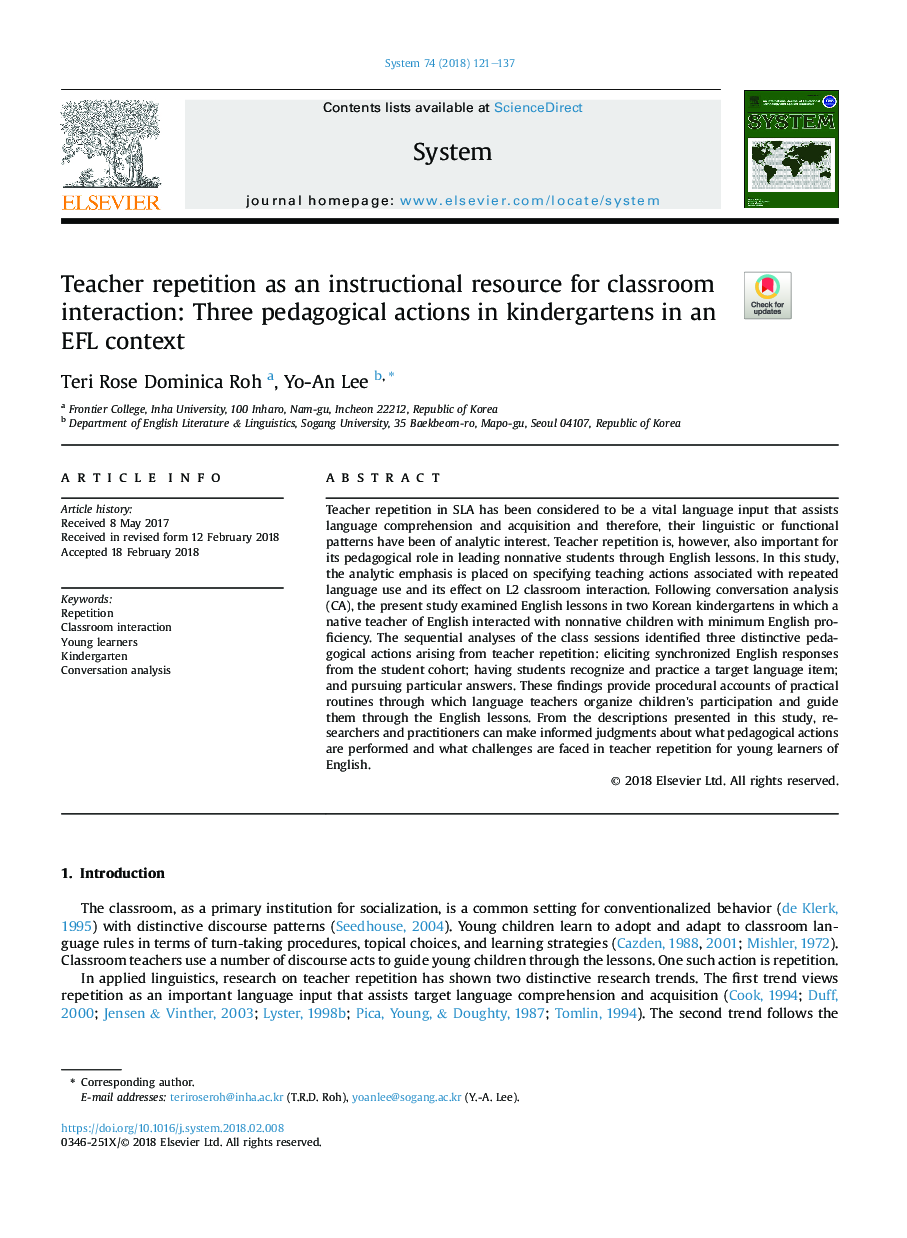| Article ID | Journal | Published Year | Pages | File Type |
|---|---|---|---|---|
| 6849312 | System | 2018 | 17 Pages |
Abstract
Teacher repetition in SLA has been considered to be a vital language input that assists language comprehension and acquisition and therefore, their linguistic or functional patterns have been of analytic interest. Teacher repetition is, however, also important for its pedagogical role in leading nonnative students through English lessons. In this study, the analytic emphasis is placed on specifying teaching actions associated with repeated language use and its effect on L2 classroom interaction. Following conversation analysis (CA), the present study examined English lessons in two Korean kindergartens in which a native teacher of English interacted with nonnative children with minimum English proficiency. The sequential analyses of the class sessions identified three distinctive pedagogical actions arising from teacher repetition: eliciting synchronized English responses from the student cohort; having students recognize and practice a target language item; and pursuing particular answers. These findings provide procedural accounts of practical routines through which language teachers organize children's participation and guide them through the English lessons. From the descriptions presented in this study, researchers and practitioners can make informed judgments about what pedagogical actions are performed and what challenges are faced in teacher repetition for young learners of English.
Related Topics
Social Sciences and Humanities
Arts and Humanities
Language and Linguistics
Authors
Teri Rose Dominica Roh, Yo-An Lee,
